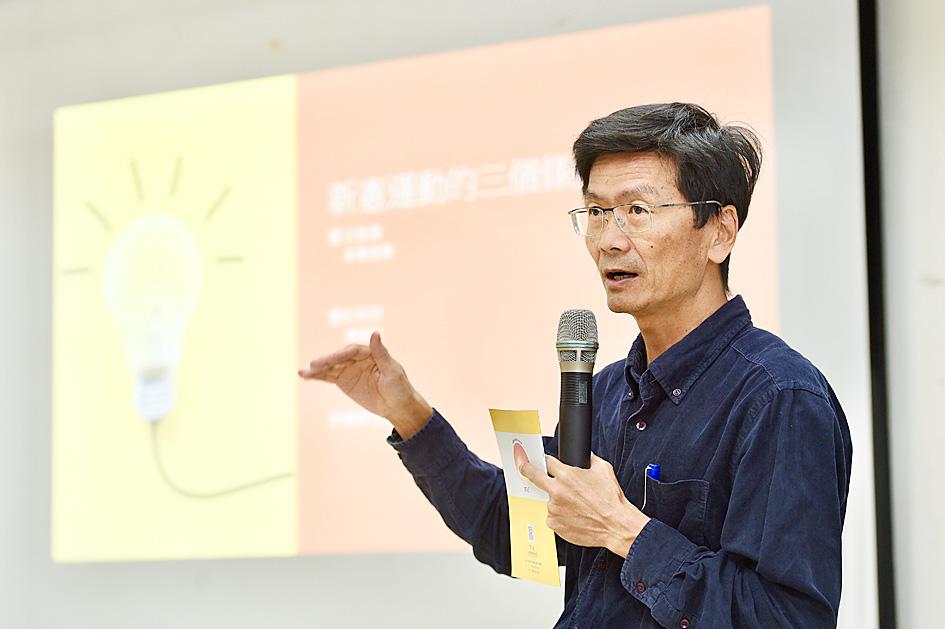If the nation is to ratify a new constitution, it must first end any illusions about the current document’s relevance to Taiwan, an academic told a forum in Taipei yesterday.
For the constitutional revisionist movement to succeed, it needs public enthusiasm, the right timing and a clear plan of action, Chung Yuan Christian University associate professor Hsu Wei-chun (徐偉群) told attendees at the event titled “Imagining a New Constitution for a New Era,” which was organized by the National Taiwan University Graduate Student Association.
The Constitution exists under the “one China” framework and has little relevance to Taiwan, Hsu said, adding that there have been calls to rewrite it for more than 40 years, but such social movements take time.
As a constitution is a highly political document that is deeply connected to a nation’s character, it must be considered when diagnosing political ailments and when imagining what kind of a country its people wish to have, he said.
Therefore, Taiwanese must become familiar with the Constitution, but at present, it is disconnected from people’s daily lives, he said, adding that if people truly want a new nation, drafting a new constitution is imperative.
Hsu said that reformers should focus on two key aspects: the Constitution’s “one China” framework and transforming governance.
Considering Taiwan’s precarious status, the “one China” framework is intertwined with Chinese aggression, yet has little to do with Taiwan itself, he said, adding that drafting a new Constitution could help the nation diagnose its political challenges and implement reform.
However, most important is how Taiwanese view their relationship with China, Hsu said.
For example, Hsu said that he still has students who think that the Shanxi and Yunnan provinces are part of the Republic of China, so to illustrate the problem, he asks them how the government should tackle crime in those regions.
Breaking this illusion of affiliation is difficult, but as Chinese aggression rises, so does Taiwanese consciousness, he said.
People’s lives have become more connected to this land, Hsu said, adding that he is optimistic about the future, as Taiwanese would have the chance to decide for themselves.
Hsu, who also serves on the executive committee of the Civil Alliance to Promote Constitutional Reform, has twice before participated in constitutional reform movements.
During the Sunflower movement, Hsu petitioned to convene a constitutional convention. After the 2016 presidential election, the alliance proposed four priorities for constitutional reform: lowering the voting age to 18, lowering the threshold for constitutional referendums, reforming the apportionment of legislator-at-large seats and revising the human rights clause.
Source: Taipei Times - 2020/09/28





















